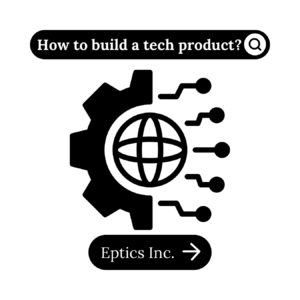In the fast-paced world of startups, speed is often seen as the key to success. Getting your product to market quickly can help you gain a competitive edge, but there’s a hidden cost that many founders overlook: tech debt.
💡 What is Tech Debt?
Tech debt refers to the shortcuts taken during product development—whether it’s cutting corners in code, skipping tests, or using temporary fixes to meet tight deadlines. While these decisions help you move faster in the short term, they can lead to long-term issues like unstable code, inefficient workflows, and difficulty scaling.
🛑 Why Does Tech Debt Matter?
Tech debt isn’t just about messy code—it can slow down future progress. As your product grows and scales, the quick fixes you made early on can come back to haunt you. Eventually, you’ll have to pay back that debt in the form of reworks, bug fixes, or even full rewrites. This means higher costs, more downtime, and frustrated development teams.
⚖️ Balancing Speed and Sustainability
So how do you move fast without accumulating crippling tech debt? Here are some key strategies:
- Set Clear Development Standards: Ensure your team follows consistent coding practices, even under pressure. Avoid shortcuts that sacrifice code quality.
- Prioritize Refactoring: Make time to revisit your code after launch. Continuous refactoring prevents tech debt from building up over time.
- Implement Automated Testing: Automated tests catch bugs and inefficiencies early, allowing you to maintain speed without compromising quality.
- Build for Scalability Early: Avoid designing quick fixes that only work for the short term. Plan for growth from the start.
- Document Everything: Good documentation helps new developers onboard faster and ensures the team understands the reasoning behind technical decisions.
🔧 Long-Term Impact
The longer tech debt accumulates, the more difficult (and expensive) it becomes to manage. While it’s tempting to prioritize immediate goals, thinking long-term will save you from bottlenecks down the road. Successful startups find a balance between speed and sustainability, building products that can scale without constantly paying the price of past decisions.
At Eptics, we help startups manage their tech debt by building scalable, high-quality solutions from day one. Ready to develop a product that grows without hidden costs? Let’s chat!
#TechDebt
#StartupSuccess
#SoftwareDevelopment
#ProductManagement
#CodeQuality
#ScalableTech
#AgileDevelopment
#SoftwareEngineering
#TechnicalDebt
#StartupGrowth
#ProductLaunch
#TechLeadership
#Refactoring
#DevOps
#LongTermPlanning
#StartupChallenges
#ProductDevelopmentTips
#SustainableGrowth




